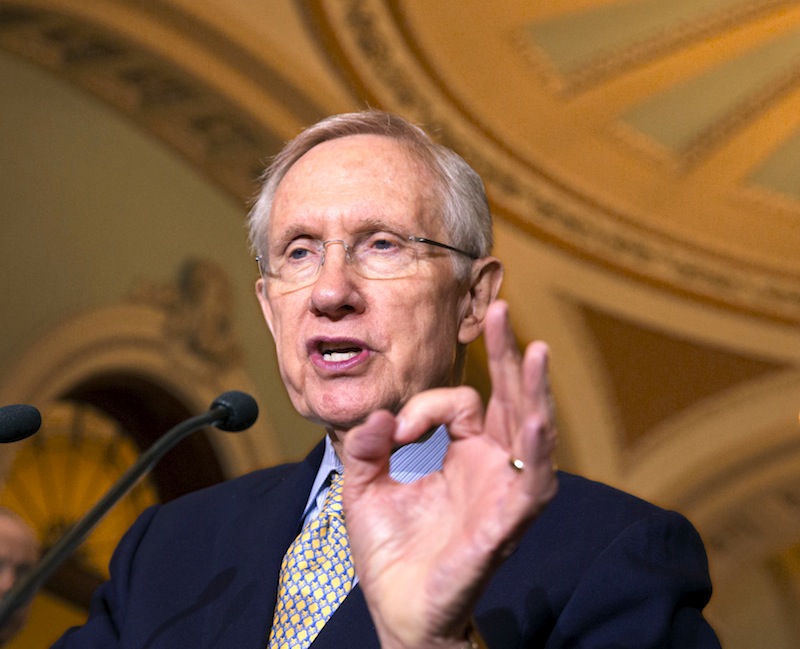Congress has eight days left to flesh out a comprehensive spending bill — known as an omnibus — in order to avert a government shutdown, and the appropriators still have a long way to go.
House Appropriations Chair Hal Rogers (R-KY) and Senate Appropriations Chair Barbara Mikulski (D-MD) are in talks about how to distribute across government agencies the $1.012 trillion in 2014 discretionary spending Congress approved last month in the two-year budget deal.
It’s a challenge for several reasons. First, Democrats and Republicans obviously have different preferences on how to parcel the money. Second, regular order requires 12 different spending bills (for different parts of government) to get approval from their respective subcommittees. Third, Congress has been operating on continuing resolutions since 2010, so this omnibus practically requires appropriators to start from scratch and address backlogged spending priorities.
Mikulski updated Senate Democrats on the status of the effort during their weekly caucus meeting Tuesday.
“She’s cautiously optimistic” the omnibus will be completed by the Jan. 15 deadline, Senate Majority Leader Harry Reid (D-NV) told reporters. “She said they’ve made a lot of progress. … So we’ll wait and see.”
The top appropriators in the House are sounding a similarly positive note.
“We are making good progress on the Omnibus,” Jennifer Hing, a spokeswoman for Rogers, said in an email. “While many challenges remain and we have a ways to go yet, there is at this time no issue that is insurmountable. It is our goal to complete negotiations on all 12 bills and have work on the Omni completed before the deadline next week.”
“Steady progress being made,” Matthew Dennis, a spokesman for House Appropriations Democrats, said in an email. “Still some open issues related to both dollar figures and policy. Still cautiously optimistic about meeting 1/15 deadline.”
So, what’s the worst-case scenario if Congress fails to get the job done in time?
There’s little danger of another shutdown. The most contentious part — agreeing on how much to spend, the dispute that culminated in the shutdown last fall — is over. Congress may simply approve another short-term continuing resolution while they hammer out the remaining details.
But that’s not what leaders in either party want to do.
“[Mikulski] does not want … a CR,” Reid said. “And I don’t either.”






